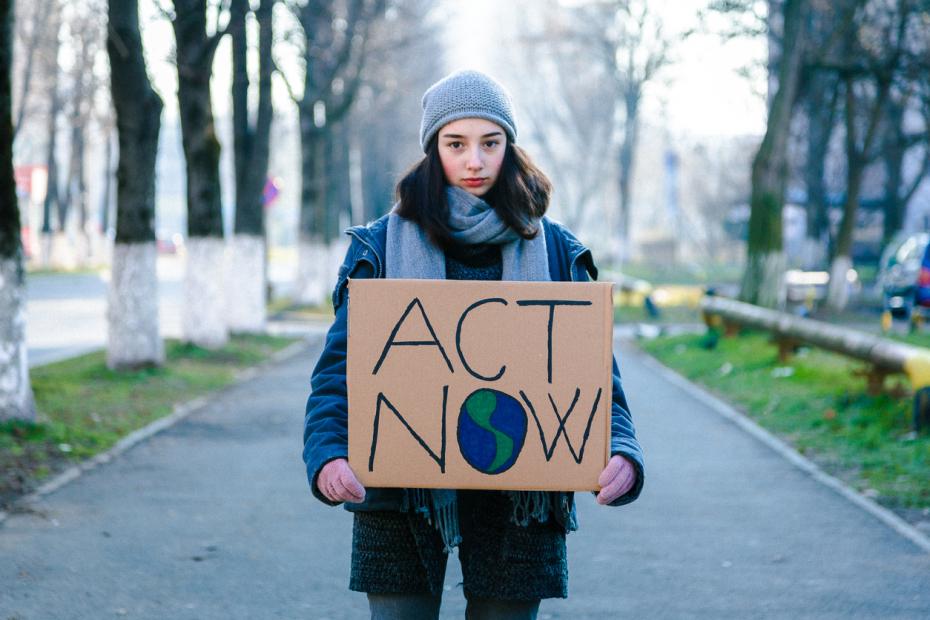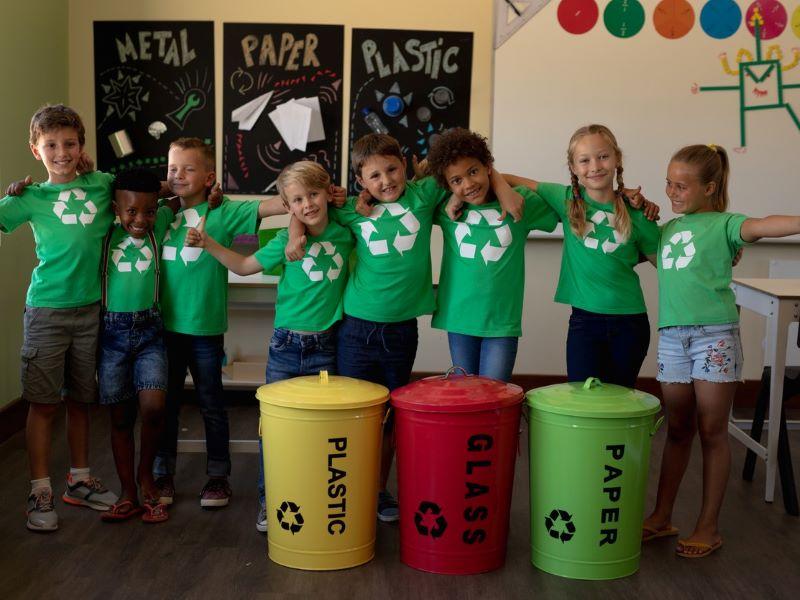
Ease students’ climate anxiety by encouraging climate action
Climate anxiety is a mental health issue and universities can help students overcome it through climate action, multiplying their own impact along the way, writes Cecil Scheib

When it comes to climate change, hope seems to be in short supply these days. It’s not hard to understand why, with regular “doom and gloom” front-page reports and post-apocalyptic films. Indeed, it’s hardly surprising that a 2021 global survey found that nearly 60 per cent of young people were either “worried” or “extremely worried” about climate change. Students consistently tell me about their climate anxiety – and even climate despair – which is characterised by researchers in The Lancet Planetary Health as a “severe and debilitating worry about climate and environmental risks”, which can cause “loss of appetite, sleeplessness, and panic attacks”.
There are two main reasons for universities to address this pervasive issue: first, our students’ ability to take action against climate change (or any positive action at all) is hampered by anxiety – in this case, climate anxiety – which can make them feel paralysed and overwhelmed. Second, climate anxiety is a student mental health and well-being issue in its own right.
- Fostering student co-creation to give back to the community
- Bring the SDGs into the classroom through role play and gamification
- A practical approach to tackling eco-anxiety
In an attempt to deal with the issue, we in the office of sustainability at New York University (NYU) spoke to more than 10,000 students throughout the spring 2023 semester, engaging them in conversations about the university’s sustainability efforts, in which many students expressed their fears and concerns about the future.
To begin with, we wanted them to know that at NYU, a collective effort to become more sustainable is well under way. In 2012, NYU reached its first landmark goal in confronting climate change when we achieved an emissions intensity reduction of 30 per cent, relative to a 2006 baseline. This was five years ahead of schedule, thanks to energy-efficiency projects as well as upgrades to our co-generation plant. NYU is working hard to meet its net 50 per cent reduction goal in the next two years by employing many of the same strategies, including low-emissions construction and retrofits, efficiency projects and behaviour change, such as turning off equipment when not in use.
We are also moving towards our Coolfood Pledge goal of 25 per cent reduction in greenhouse gas (GHG) emissions from food purchases by 2030. Building- and food-related GHG emissions account for more than half humanity’s contribution to climate change. By 2040, NYU has pledged to be completely climate neutral. This knowledge will hopefully build our students’ confidence and motivation for individual change.
Then, this past April, we launched 2040 Now, a week-long experiment to draw students – and the entire university community – into working together towards this collective effort. We held more than 70 events over five days, including interactive panels with faculty, training sessions, giveaways with sustainable menstruation products and eco make-up options, as well as hands-on, experiential events where students could try plant-forward cuisine, learn to ride a bike, grow shiitake mushrooms at home, and send feedback to their elected officials. However, the ultimate goal of 2040 Now was to show the university community that they are not alone, and to guide students in transforming their climate anxiety into climate action.
In fact, taking action to address climate change is one of the best ways to address the stress it causes. A study in the Journal of Environmental Psychology states that engaging in “pro-environmental behaviors […] has been shown to attenuate climate anxiety”, and the Anxiety & Depression Association of America lists getting involved as one of the main ways to address anxiety in general. Having the president, provost and many deans attend, alongside students and faculty, also helped us show our students that climate change is an issue that the whole university community must work on together to address.
In many ways, 2040 Now was a successful pilot initiative. Not surprisingly, events that gave away food or swag had great attendance (a climate-focused concert featuring the bandleader from Saturday Night Live also attracted hundreds). But attendance isn’t the only measure of engagement. Our Ask the Expert tabling sessions attracted a few dozen students, but those conversations were long and rich. I heard one student begin a session in an anxious and divisive tone, questioning why NYU wasn’t doing more composting. After nearly an hour of conversation with the head of the university’s composting programme, the student switched from critic to collaborator, proposing solutions they could help execute in a hopeful and motivated manner. Other students reported feeling inspired to volunteer with local environmental groups or surprised by how delicious plant-based meals tasted. Participating in these individual actions, and being part of a community, proved key to begin addressing their own eco-anxiety.
Universities are a leading source of research on climate change and how to mitigate its effects, and have acted boldly with steep greenhouse gas emission reductions. To educate, engage and encourage our students to take action is one of the most important roles we have as university leaders. In fact, multiplying our impact by positively influencing the actions of thousands of students may be the biggest contribution we can make when it comes to addressing climate change – the great global challenge of our time. And by doing that, we are helping students navigate their own climate anxiety and sense of hopelessness, too. We have no other choice. Our planet – and our students’ mental health and well-being – depends on it.
Cecil Scheib is chief sustainability officer at New York University, a licensed professional engineer, a certified energy manager and a LEED AP.
If you would like advice and insight from academics and university staff delivered direct to your inbox each week, sign up for the Campus newsletter.


